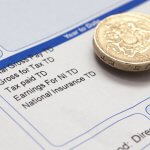You might receive it every month – online, by paper or through a link in your staff portal – yet what do you actually know about your payslip? Sure, it may outline your income for the month and any tax and national insurance deductions that have been made, but can you confidently say that you understand everything written on this slip?
If the answer is no, then never fear. In the following guide we shall show you how to navigate your payslip, and understand what it is all about.
What is a payslip?
To describe it simply, your payslip is a record of your employment and payments. It will contain your payroll number, your gross and net pay, the tax and national insurance payments you’ve made, and any contributions you’ve done to your pension (if you belong to a scheme).
Now, when it comes to receiving payslips – no matter whether you’re a casual worker or are contracted – you are entitled to an individual and detailed written payslip at the time of payment. The only time you wouldn’t receive one is if you’re independent contractor or if you work as a freelancer.
Is there a timescale to keeping your payslips?
There will be times in your life where you will be asked to provide payslips as proof of your earnings. The most common ones being when you apply for a loan or a mortgage. With both of these, you’d be asked to provide 3 to 6 months of payslips, to prove you can afford repayments.
Other occasions include:
- Those in mixed employment i.e. if you work as an employee and as a freelancer/contractor – you will need to keep your payslips to help you complete your self-assessment.
When storing paper payslips, it is essential that you store them somewhere safe and that you adopt proper record-keeping (in case you are ever challenged over your tax payments). Likewise, as they contain a lot of personal information, you don’t want these details falling in the wrong hands. So you need to keep them safe, so you don’t suffer from identity fraud.
What information will you find on your payslip?
- Alongside your name, address and national insurance number, you will also find the following information;
- Payroll number – this is unique and helps your company to identify you (as it links to you and your payment records);
- Variable deductions – this covers any money taken out of your pay i.e. your pension, tax, national insurance, car permit payments, etc. These will vary depending on how much you earn;
- Fixed deductions – these are fixed amounts that get taken out of your pay no matter your earnings i.e. child maintenance payments;
- Total take-home pay – this will be the figure you see in your bank account;
- Amount and method of any part payment of wage – this outlines how you will be paid, as well as will tell you if your take-home pay includes any other money that you are owed;
- Tax period – this runs from April to April, with the first April of the tax year showing as 01 and March of the following year being shown as 12;
- Tax code – you will receive this from the HMRC and it will tell your employer how much you are allowed to earn tax-free;
- The letter you see in this code indicates your status i.e. if you’re single or are receiving a married tax reduction, etc;
- National insurance number – anyone who works in the UK will have one of these and it will stay the same your whole life (even if you get married). These get assigned on your 16th birthday, and will ensure your contributions are properly recorded;
- Pensions – if you’ve registered onto a work-based pension scheme then you will be able to see the amount you have contributed, as well as the amount your employer has paid;
- Student loan – if you earn enough to pay off your student loan, then you will see this deduction from your pay;
- Workplace benefits – this includes health insurance and company cars.
Now the above only covers the basics of what you need to know. To learn more about your payslip you can either take advantage of one of our online accounting courses, or you can wait for our blog next week, where we will delve deeper into the mechanics of how your payslip works.
For more information on our courses, visit our website.






Comments (0)
Join the conversationCancel Reply